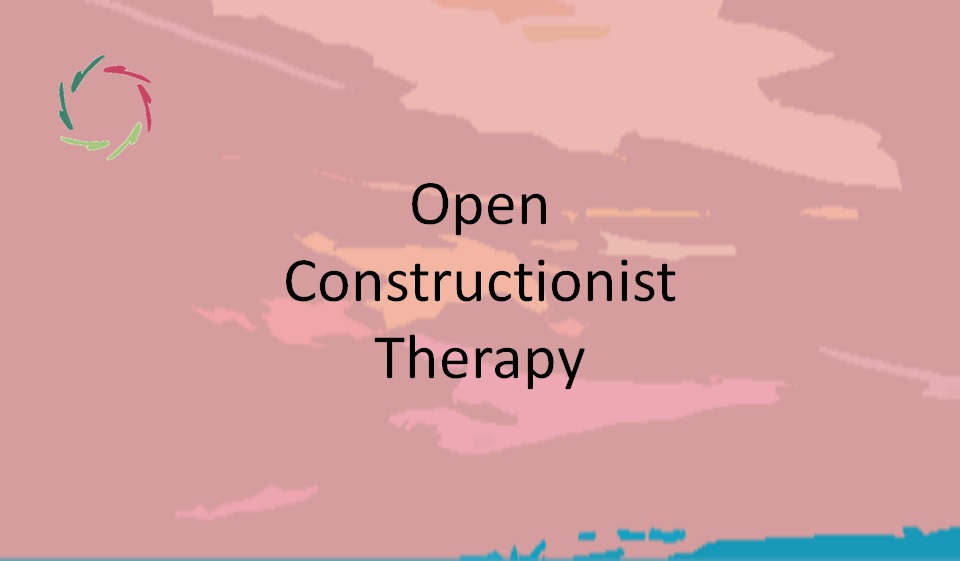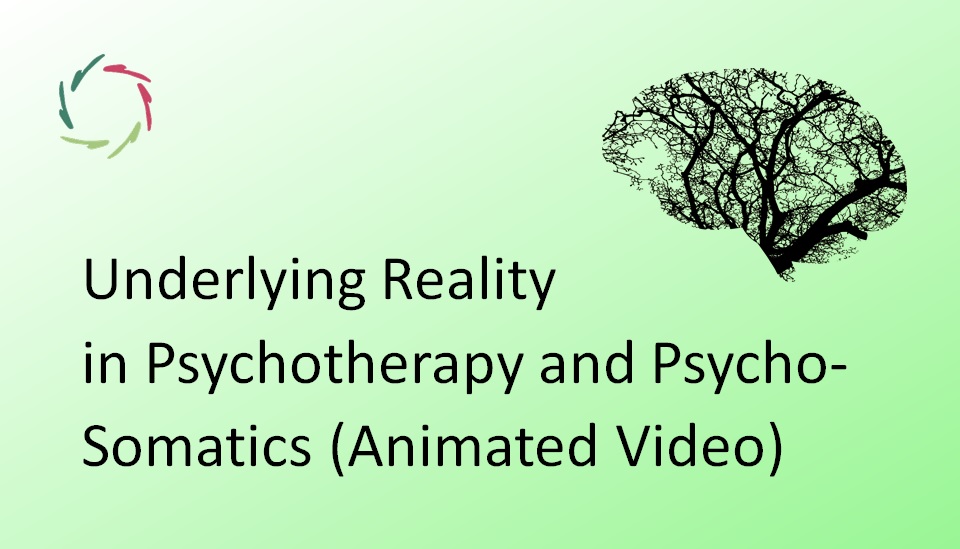Open Constructionist Therapy

Open Constructionist Therapy (OCT, a new concept) is a scientifically valid way to combine constructed and fundamental ‘realities’ in psychotherapy/coaching (P/C).
In ‘constructionist therapy,’ the therapist/coach is aware of the placebogenic nature (thus lacking inherent power and privileged knowledge) of the vastly different psychotherapeutic methodologies that he nevertheless uses in his practice. In OCT, he is also fully open about this to others, including the own patients/clients.
If not done yet, please first read Psychotherapy vs. Psychotherapies as background to grasp this blog’s implications.
Openness
‘Open’ is to be understood in its two meanings:
- Horizontal — just being honestly open about it toward the client.
- Vertical — taking into account deeper layers of mental-neuronal processing.
As in ‘open-label placebo’?
This is, in medicine, about the use of a placebo (dummy pill) while being open abot it to the patient. “It works” — or does it? As shown in my perspective article, this cannot cut the mustard. Dummy pill = dummy pill.
One cannot transform lead into gold.
In P/C, the setting is different.
Here, matter does not need to be transformed — no need for magical dummy meds. Talking therapy uses words from beginning to end.
In words, one can bring realities closer together more easily. There is more room to be open and definitely more occasion to be Open.
Therefore, in P/C, one may well be open/Open and effective at the same time. The tools (methodologies) that one uses then become additional instruments of (auto)suggestion from the start. One can delve into how to make them more effective as such tools ― not as magical wands. Moreover, this endeavor makes the setting scientifically valid. This way, we can use science (such as Lisa science) for continual meaningful improvements of the domain as well as of the individual therapists through on-the-job learning. Both are currently lacking despite many claims and therapists’ private intuitions.
With P/C based on reality, we may also attain growth from the inside out — say, genuinely durable effects (which current science also increasingly clearly shows to be missing with purely concept-based methodologies).
Truth is what works?
In the pragmatic viewpoint of ‘truth is what works,’ truth is reduced to something outside itself. A yardstick is used that is not necessarily truth-bound.
In P/C, “it works” may seem enough to some. It’s the cornerstone of pragmatic philosophy. But what is ‘it,’ and toward what does it work? Also, for how long? With which side effects? With which unrealized potentialities? In conceptual sciences, these questions may be of little to no relevance ― not so in the humanities. In the latter, nothing is straightforward enough to discard these questions as simply extraneous. They may incorporate the crux of the matter.
Therefore, I would turn this into Only truth works — especially in healthcare.
This said, it’s also more challenging to exert a placebogenic effect if one (client and/or therapist) doesn’t believe in it oneself. In my view, this wall should be lowered, not just accepted.
Nothing but the truth?
Eventually, yes. Truth – which is nothing but the continual striving for truth, of course – is essential. In truth, science and spirituality come together, making room for much beauty and human growth potential based on a radical new understanding.
I see no other way, also in view of the following.
Patient/client informed consent
If OCT works satisfactorily on a big scale, the issue of consent also becomes essential in P/C. Even the more demanding aim of patient/client choice is important enough in all matters of human depth. To be able to choose, of course, people need truthful instruments and backgrounds. It is the therapist’s responsibility to provide these when asked and regularly point to the fact that they should indeed better be asked.
This is undoubtedly more ethical than keeping the choice entirely at the therapist’s side, irrespective of how well-meaning and ‘client-centered’ he otherwise may be. In the end, only the client knows best what he needs to grow.
People must know what is scientific or not — certainly so if there is no pragmatic argument to proceed otherwise.
Moreover, OCT is not the end. I see it as a step – if client and therapist are ready – toward a complete and profound Openness in which Compassion can be used at full throttle — say, AURELIS coaching.
This way, healthcare finds its true potential.
Meanwhile, “far more important than what the therapist is doing is who the therapist is.” [The Heart and Soul of Change, Duncan et al., 2010]


